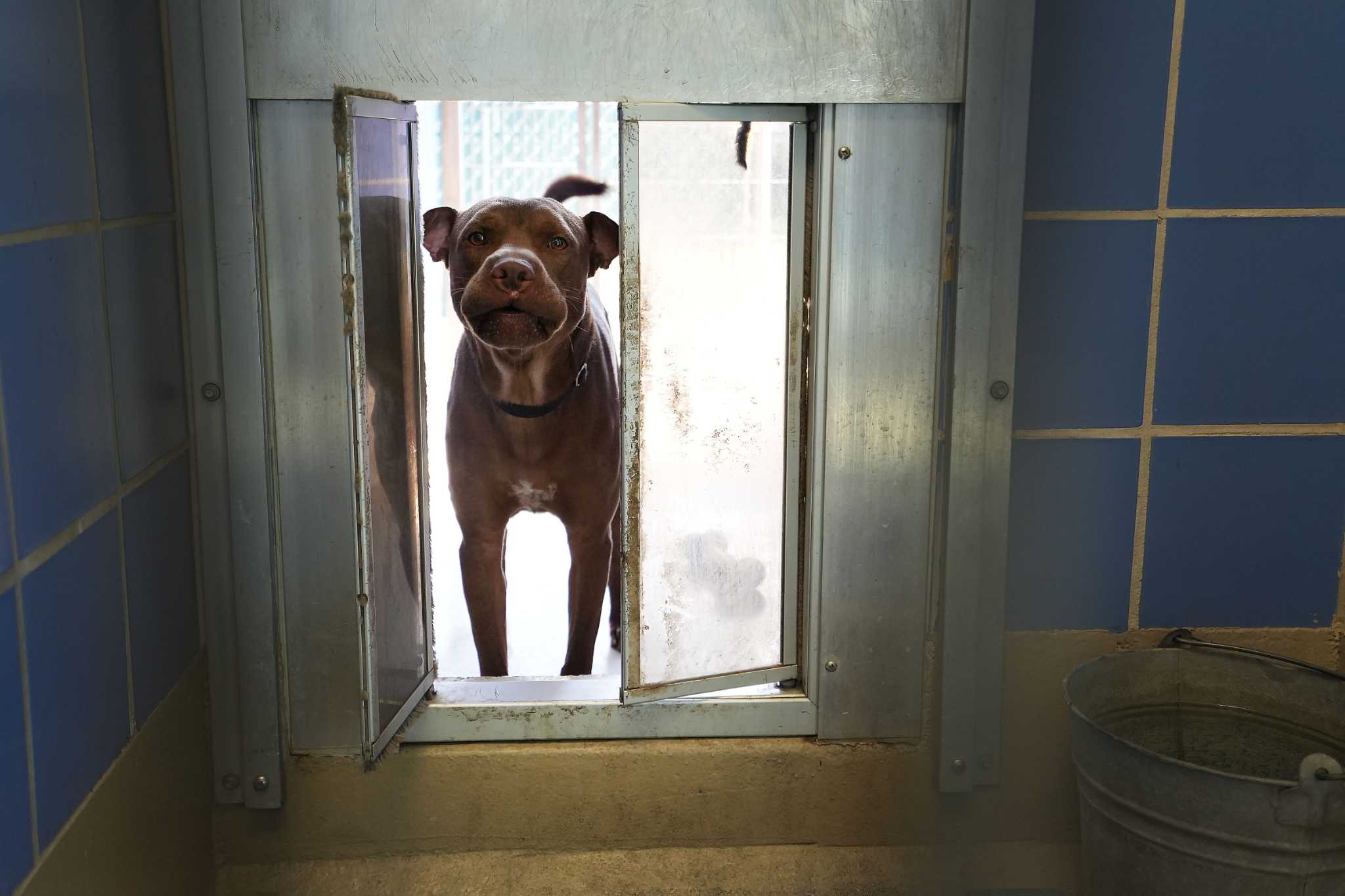news
Austin council narrows spay abortion rule, adds lactation notice
Austin City Council amended a spay-abortion policy, requiring the city shelter to give a 3-hour notice to Austin Pets Alive! when animals are lactating.
Published September 26, 2025 at 3:47pm by Dante Motley

Trap, a mixed mutt, watches Melody Courtney clean kennels at the Austin Animal Center last fall.
BRIANA SANCHEZ/AMERICAN-STATESMAN
The Austin City Council has partially rolled back its policy allowing city veterinarians to spay pregnant animals without a waiting period.
The council passed a budget resolution on Aug. 13 that scrapped a rule requiring two days’ notice to rescue groups before spaying visibly pregnant animals, leaving abortion decisions up to city veterinarians. But during Thursday's council meeting, an amended resolution proposed by Mayor Kirk Watson added a requirement that the city manager notify Austin Pets Alive! when animals are lactating, giving the group three hours to pick them up.
A study in the animal science journal Animal Frontiers showed that dogs can begin lactating as early as two weeks before giving birth. A different veterinary study said cats can begin lactating two to three days before giving birth.
The amended resolution passed on a 6-4 vote, with Watson, Mayor Pro Tem Vanessa Fuentes and council members Natasha Harper-Madison, José Velásquez, Zo Qadri and Ryan Alter voting in favor. Council members Krista Laine, José Vela, Mike Siegel and Marc Duchen voted in opposition, and Paige Ellis abstained.
"This leaves the ordinance largely intact," Watson said, "with one small exception that allows for continued partnership and greater collaboration in some instances."
APA! President and CEO Dr. Ellen Jefferson told the American-Statesman last month that the council’s earlier decision had set their partnership "10 steps backward."
"We believe in collaboration," Jefferson said at the meeting. "We also believe that every animal deserves a second, third and fourth chance and at least a fair trial."
Although city policy has never prohibited the spaying of visibly pregnant animals, shelter records show that none have been spayed at the Austin Animal Center since 2022. Instead, those animals are almost always transferred to the city’s largest rescue partner, Austin Pets Alive!, before any surgery takes place. In the month since the waiting period was eliminated, records show still no visibly pregnant animals were spayed.
Watson, who was the sole "no" vote on the August resolution, tacked on the new three-hour waiting period to a resolution proposed by Council Member Krista Laine that removed a requirement for the Austin Animal Center to publish monthly and annual reports on the number of visibly pregnant animals spayed.
The debate comes as the Austin Animal Center continues to operate at or above capacity, forcing periodic intake closures. A 2023 city audit warned that persistent overcrowding threatens Austin’s no-kill status unless reforms are made.
‘Untenable’ argument
Laine, who authored the original resolution eliminating the waiting period, opposed Watson’s amendment. She argued that writing a special notification rule for a single rescue group into city code sets a bad precedent and said those kinds of expectations should be handled through contract negotiations, not ordinance. Her intent, she said, was to restore decision-making authority to veterinarians, streamline city functions as the council tightens its belt and "separate policy from process."
"I did not bring anything forward out of an attempt to radically reinvent Austin’s relationship with Austin Pets Alive!," Laine said.
Animal advocates lined up on both sides of the amendment during public comment.
Opponents, including practicing veterinarians and shelter staff, warned the amendment would tie the hands of professionals already working under strained conditions. They told council members that medical decisions should remain in the hands of trained staff, not dictated by ordinance, and cautioned that singling out one nonprofit for special treatment undermines the city’s broader network of rescue partners.
Supporters praised Watson’s effort as a step toward preserving collaboration with Austin Pets Alive!
"We believe in transparency and community access, and we believe that Austin can operate as the premier no-kill city right now with the resources it has," Jefferson said. "Collaboration works best when we are all heading toward the same goal, even if we argue over the exact path."
Several council members acknowledged the debate has grown toxic. Harper-Madison said the issue has become "untenable" for policymakers caught between warring advocates, adding that "good compromise means everybody leaves the room feeling like they lost something." Watson echoed the concern, warning that the fight had taken on the tone of "partisan politics" and risked preventing the city from making sound animal welfare policy.

